When to See An Endodontist vs. An Oral Surgeon

When it comes to your dental care, it is essential to be as informed as possible. Throughout your treatment, you may hear terms such as endodontist and oral surgeon. However, what do these two specialists do? And which one should you see? Keep reading to learn the differences between these two specialists and which is best for your dental needs.
What Is an Endodontist?
An endodontist focuses on preserving diseased teeth. One of the most common procedures an endodontist offers is a root canal treatment. An endodontist can also perform microsurgery to correct dental problems beyond the interior of a tooth.
If needed, an endodontist can perform surgery to treat tooth disease in smaller areas, such as the microscopic anatomy at root ends. Endodontists use high-tech imaging equipment and dental microscopes to assist with surgery to enhance visibility.
What Is an Oral Surgeon?
An oral surgeon or an oral and maxillofacial surgeon is a surgical specialist who performs surgery anywhere in the mouth and face. Oral surgeons must undergo an additional four to six years of education to perform surgery on various sites on the face and mouth.
Oral surgeons perform surgery on a broader scale and often remove or replace teeth if they are no longer functional. An oral surgeon can also perform reconstruction surgery on damaged bones or soft tissues in or around the mouth.
What Type of Surgery Does an Endodontist Perform?
Endodontists operate on a smaller level compared to oral surgeons. During surgery, an endodontist will use a microscope and other small instruments to remove the infection from the tooth and preserve the roots. Typically, an endodontist does not perform tasks such as filling cavities or pulling teeth. If your dentist recommends surgery to correct the smaller components inside your teeth, they will likely refer you to an endodontist.
A common endodontic surgery is an apicoectomy. This operation consists of a small incision through the gums to access the inflamed tissue at the root end. The endodontist will remove the infected tissue and the diseased portion at the tooth’s root. The endodontists will then apply a biocompatible filling on the clean end of the root before closing the gums. After removing the infection and sealing the root end, the jawbone will heal around the site to create a healthy new bone.
What Type of Surgery Does an Oral Surgeon Perform?
Instead of conducting microsurgery on the small roots of your tooth, an oral surgeon may complete more extensive surgeries, such as removing a tumor from the mouth or repairing a cleft palate. If you require any mouth or facial surgery that utilizes general anesthesia, you will most likely receive a referral to an oral surgeon and an anesthesiologist.
Most people are familiar with oral surgeons because they perform surgeries such as removing wisdom teeth. An oral surgeon can extract all impacted teeth, not just the molars. Oral surgeons can also perform procedures such as placing dental implants, removing lesions, draining infected tissues, operating on jaws, setting broken bones and treating sleep apnea.
Endodontists vs. Oral Surgeons

Endodontists and oral surgeons both operate on the teeth, making them essential aspects of your dental care team. However, the main difference between endodontists and oral surgeons lies in the type of surgery required. An endodontist performs microoperations on your teeth’s interior, while an oral surgeon focuses on more significant repair and restoration.
For some patients, the timing of their treatment may determine if they see an endodontist or oral surgeon. For example, if you put off getting a root canal long enough that the infection spreads, you may lose your tooth entirely and need to see an oral surgeon to extract the tooth.
In the case of a cracked or broken tooth, whether you need an endodontist or oral surgeon will depend on several factors. For example, if the tooth has a crack or splits under your gum line, you may need an extraction from an oral surgeon. For a minor crack, you can consult with an endodontist to learn what you can do to protect and maintain the tooth.
When You Should See an Oral Surgeon
You must visit your dentist for a referral to see an oral surgeon. Some of the most common reasons a dentist refers patients to an oral surgeon include the following:
Tooth Extraction
While dental professionals want to do everything possible to save your teeth, there are times when an extraction is necessary. Some instances when an oral surgeon might refer you to an oral surgeon to prevent worsening symptoms are:
- Severe pain from tooth impaction
- Bleeding gums
- Hard-to-reach extractions
- Severe tooth decay
- Cavities underneath the gum line
Dental Implant Placement
While your dentist can place a dental implant, you may prefer to see an oral surgeon. Oral surgeons have advanced education and training in placing dental implants. By choosing an oral surgeon, you will have the best chance of a successful procedure.
Corrective Jaw Surgery
One common reason you may visit an oral surgeon is for corrective jaw surgery. This procedure helps treat jaw irregularities and improve your ability to chew, breathe and speak. Most cases of jaw surgery typically require realignment and reconstruction to enhance overall functionality.
When You Should See an Endodontist
Since an endodontist specializes in issues with the soft tissue and nerves inside your teeth, you need a referral from a dentist to visit their office. Some problems that may require a referral to the endodontist include the following:
Root Canals
If your dentist cannot perform a root canal due to complications such as the problem tooth being a molar or a condition requiring retreatment, you may receive a referral to an endodontist. In cases where the infection is too deep, your dentist may refer you to an endodontist for surgery instead.
Apicoectomy
An endodontist will perform an apicoectomy if a root canal treatment is not enough to correct an infection. During an apicoectomy, the endodontist goes through the gum instead of the tooth to remove the root tip.
Traumatic Teeth Injuries
In an accident or head injury, a tooth may experience trauma leading to cracking, chipping or breaking. Seeing an endodontist can save the root and fix the tooth. If the tooth experiences enough damage, the endodontist can perform a root canal to prevent an infection.
Schedule an Appointment for Root Canal Treatment at Midtown Endodontist NYC Today
Whether you need a root canal, an apicoectomy or experience a traumatic tooth injury, Midtown Endodontist NYC is here for your needs. We have years of experience providing effective root canals and root canal retreatment services. Contact our team to learn more about our root canal services, or book an appointment at our office!
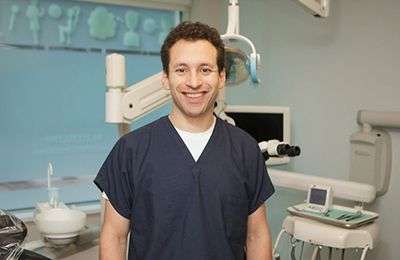 Our Providers
Our Providers
 Blog
Blog
 Contact us
Contact us
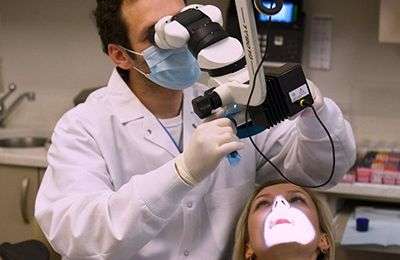 Endodontics
Endodontics
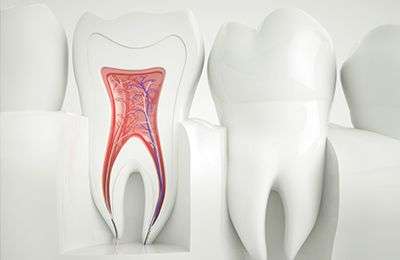 Root Canal Treatment
Root Canal Treatment
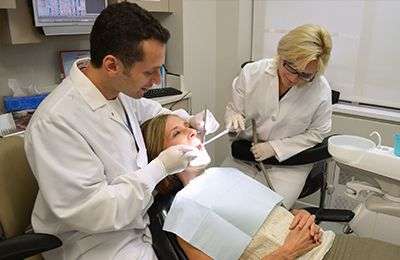 Emergency Root Canal
Emergency Root Canal
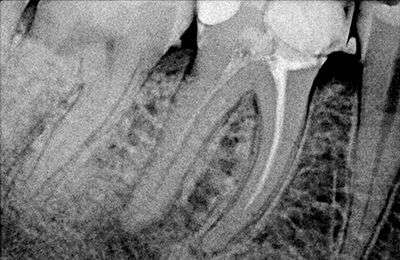 Root Canal Retreatment
Root Canal Retreatment
 Complimentary Teeth Whitening
Complimentary Teeth Whitening
 Teeth Whitening
Teeth Whitening





